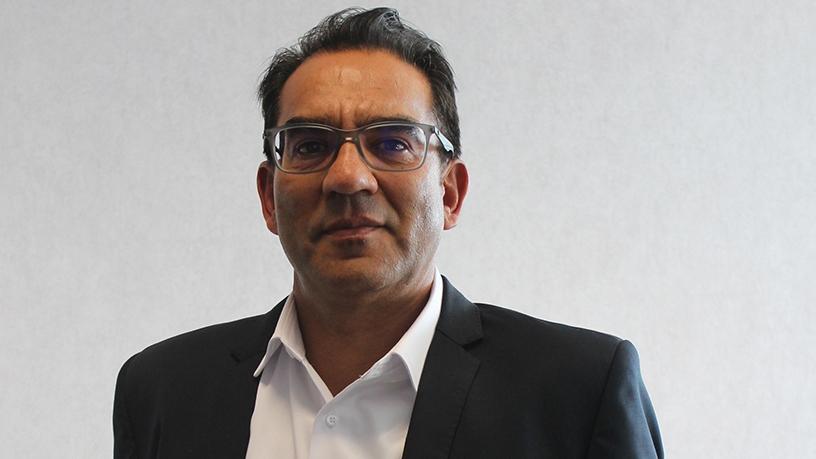
EOH's public sector business struggled in the six months to 31 January in "a particularly tough period", which it says was a result of "political uncertainty, squeeze on public sector funding and delays in sign-offs as well as the awarding of contracts".
"Payment practices from the public sector over the past year were poor; however, we have seen a marked improvement over the last two months," says the technology services company.
It adds that since 1 February, the group received payments totalling over R500 million from outstanding public sector debtors.
A tough macro-economic environment saw EOH headline earnings drop by 23% to R458.4 million for the half year, while earnings before interest, taxes, depreciation and amortisation fell almost 8%, to R1 billion. Operating profit from continuing operations amounted to R784 million, a 6% drop year-on-year.
Headline earnings per share (HEPS) from continuing operations fell 24% to 314cps and earnings per share (EPS) from continuing operations decreased by 23% to 320cps for the half year. When including discontinued operations, overall EPS plummeted 89% to 47cps, compared to 439cps a year ago. HEPS, including discontinued operations, were 319cps, a 27% drop year-on-year.
"The combination of the macro-economic environment and the adverse, unfounded media coverage that EOH received, temporarily affected the group's position in the market. Consequently, EOH has delivered results reflective of the above for the period under review. Despite these market conditions, all areas of the business coped relatively well," the group says.
However, revenue from continuing operations was a bright spot as it rose almost 19% to R8.4 billion "as a result of increased activity at EOH's existing customers".
"Revenue for the six-month period has increased in all areas of the business. Growth has been focused on existing business, which has resulted in organic growth accounting for 71% of the overall revenue growth. 85% of EOH's revenue is derived from within South Africa," the group says.
"The recent political leadership changes in South Africa have seen the country enter a phase filled with a renewed sense of hope and optimism. Prior to this, the period under review was characterised by difficult trading conditions, compounded by a unique set of challenges that EOH had to overcome during the period. EOH welcomes the 'dawn of a new era' and enters the next period with confidence."
EOH says it also adopted a deliberate customer retention strategy, which resulted in some margin sacrifice, but which also aided in the group gaining market-share.
"Since February 2018, there has been a positive shift in the market towards EOH, resulting in a normalising of the environment and client engagements. These are strong indications that margins will normalise in the second half of the year as stability returns and business confidence grows," it says.
During the six months under review, EOH unwound its original acquisition of the GCT Group of companies through a 'sell-back' agreement effective 31 October 2017. This had a material impact on the group's results due to a once-off, non-cash reduction in consolidated earnings after tax of R400 million, which had a negative impact on EPS.
Sector growth
The combined revenue derived from services was around R7 billion for the period, which represents 84% of EOH's total revenue.
The group's IT services business, which includes IT infrastructure, saw revenue increase by close to 22% to R3.7 billion. The software business grew by 18% to see revenue of R1.35 billion for the six months.
EOH says its customers are continuing to spend on maintaining their legacy systems and investing in new-generation digital technologies.
"Significant investments in technology slowed during the period but should pick up in the short- to medium-term. There is a move to cloud-based infrastructure solutions and infrastructure as a service," it says.
The industrial technologies business saw revenue grow by 23% to almost R1.9 billion. Growth drivers in the sector included smart city initiatives, smart water technologies and solutions, industrial Internet of things, energy management and efficiency programmes, broadband infrastructure, public safety and security solutions and intelligent transport technology solutions.
However, EOH says long delays in the awarding of energy-related contracts remain a concern and had an impact on the profitability in the energy cluster.
"The anticipated awarding of these contracts has highlighted the need to retain critical skills. With the stabilisation of the broader political and economic environment, the outlook is more promising."
The business process outsourcing sector saw revenue grow by 8% to R1.4 billion.
Business split
EOH this month announced a new growth strategy with plans to split its business into two separate entities, each with its own distinct identity and brand, growth strategy, go-to-market approach, business model and culture.
The first business will trade under the EOH brand and focus on ICT services and solutions, while the second business, Newco, will be named and launched in April.
"The implementation of EOH's strategy ? with two distinct growth platforms, each highly focused ? will facilitate enhanced growth from each of the businesses," it believes.
EOH also announced a long-term strategic partnership with 100% black-owned investment holding company, Lebashe Investment Group. The transaction will result in an equity investment by Lebashe of R250 million and the provision of a funding facility of R3 billion.
"With the partnership with Lebashe and the enhanced empowerment credentials, EOH has the ability to compete more effectively in a very competitive market," the group concludes.
Share